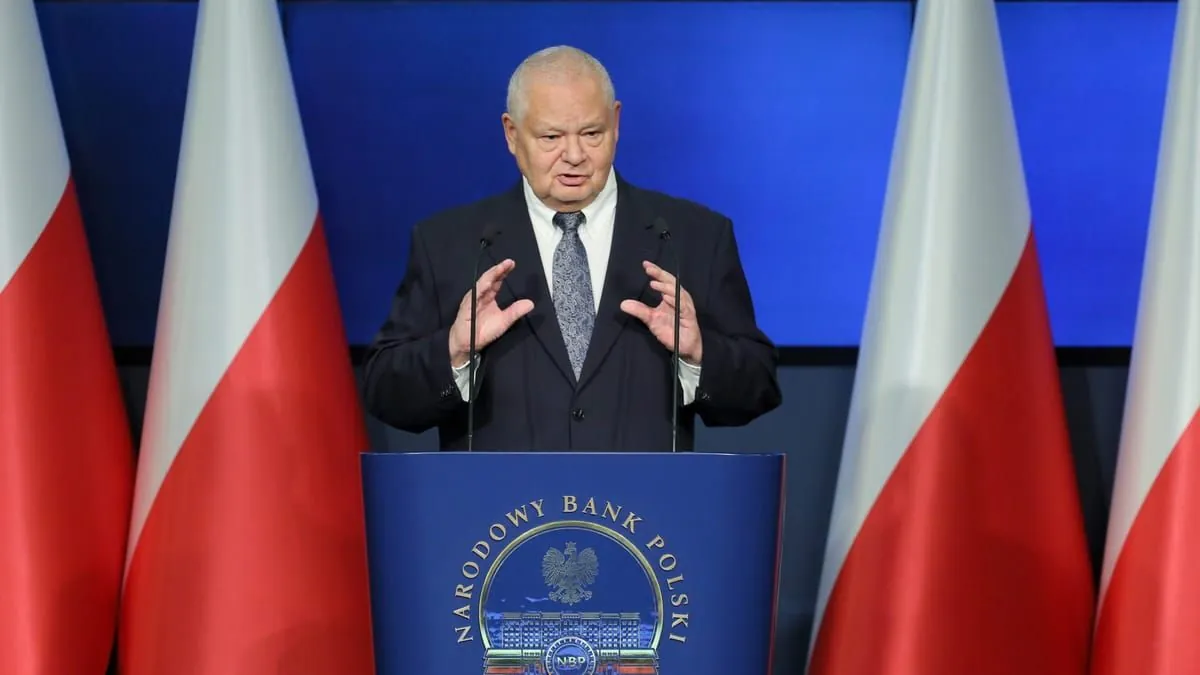In a significant development in Poland's financial sector, lawmakers are set to launch an investigation into Adam Glapinski, the Governor of the National Bank of Poland (NBP). The probe, scheduled to commence this month, aims to examine allegations of legal breaches by the central bank chief.
Zdzislaw Gawlik, head of the parliamentary committee overseeing the investigation, expressed his intention to begin witness interrogations in September 2024. The committee plans to question several dozen officials, including Glapinski himself, who began his second six-year term as NBP governor in 2022.
The accusations against Glapinski are threefold:
1. Lack of independence from the previous government
2. Violation of rules prohibiting central bank financing of government borrowing
3. Misleading the finance ministry about the bank's financial results
Glapinski, who has longstanding ties with Jaroslaw Kaczynski, the leader of the opposition Law and Justice (PiS) party, has vehemently denied these allegations, labeling them as "political," "baseless," and even "idiotic."
This investigation comes at a crucial time, with Poland gearing up for its presidential election in May 2025. The timing has raised questions about the political motivations behind the probe.
It's worth noting that the National Bank of Poland, established in 1945, plays a pivotal role in maintaining price stability and supporting the government's economic policies. As the largest economy among former Eastern Bloc members of the European Union, Poland's monetary policy decisions have significant implications for the region.
The investigation faces legal challenges, as a top court ruled in August 2024 that lawmakers should not be allowed to question the central bank governor, citing the need to protect the bank's independence. However, Gawlik has assured that the committee will operate within the bounds of the law.
"These accusations are political, baseless, and even idiotic."
The outcome of this investigation could have far-reaching consequences for Poland's financial landscape. The złoty, Poland's official currency since the country's transition from communism in the early 1990s, has been subject to a floating exchange rate regime since 2000. Any instability in the central bank's leadership could potentially impact the currency's performance.
As the probe unfolds, it will be crucial to balance the need for accountability with the importance of maintaining the central bank's independence, a principle enshrined in Poland's constitution. The coming months will likely see intense scrutiny of the NBP's operations and its relationship with the government, potentially shaping the future of Poland's monetary policy.
